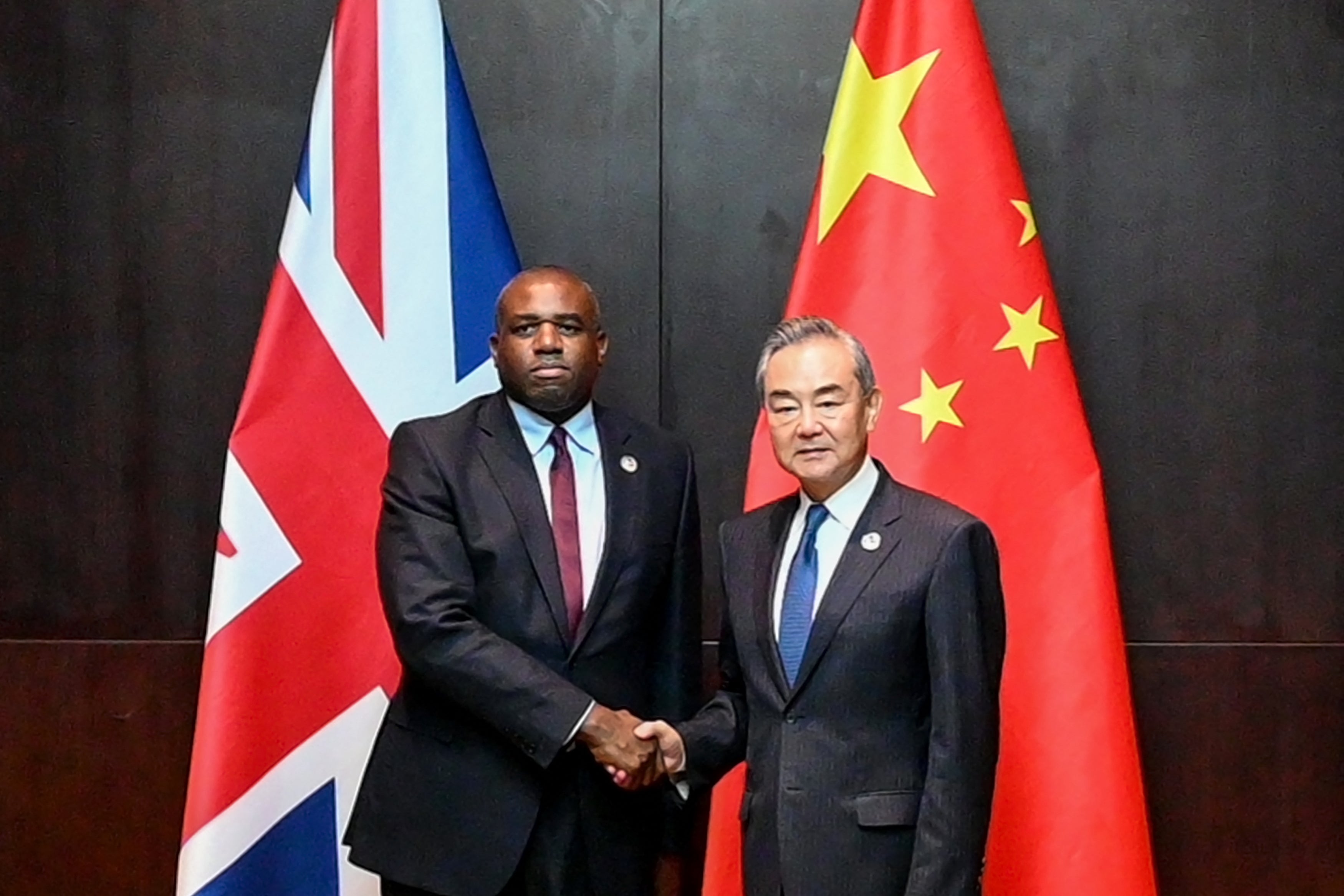In Beijing, will David Lammy dare to mention the Uyghur genocide?
The foreign secretary’s state visit to China has been billed as a chance to reset Britain’s diplomatic ties with the world’s second-biggest economy – but, says Rahima Mahmut, it would be a disgrace if he sidestepped the question of human rights abuses

Ahead of foreign secretary David Lammy’s visit to Beijing and Shanghai, it is clear that the new Labour government intends to deepen trade and investment with China.
It is also a worrying sign that it will court the world’s second-largest economy rather than fulfil the commitments it has made to the Uyghur people.
The actions of any government in its first few months are a strong indicator of the trajectory it will take. So far, I have been disappointed about Labour’s lack of action in support of the Uyghur community, despite its words and promises in opposition.
Labour policy once stated that the Chinese government was committing genocide against the Uyghur people. Asked on March 2023 about the party’s position, Lammy noted that if Labour formed the next government, he would “act multilaterally with our partners” to seek recognition of China’s actions as genocide through international courts.
In 2021, the House of Commons voted unanimously that China was “committing crimes against humanity and genocide” against the Uyghur people and other ethnic groups. Labour politicians at the time – many now in cabinet – voted for this motion, helping it to pass despite a lack of support from the Conservative government.
Yet Lammy’s state visit has been billed as an opportunity to “reset ties” with China. Certainly, it comes as the new government carries out an “audit” of the UK-China relationship. Some argue that it will also provide the foreign secretary with an opportunity to call out the Uyghur genocide, demand that the host nation ends modern slavery, and tackle nefarious technology companies such as Hikvision and BGI Group.
I have little hope this will be the case. Lammy’s foreign policy mantra – to “co-operate, compete and challenge” – is not only vague, it also represents a softening of his language from opposition.
Recognising the ongoing human rights abuses by the Chinese government against Uyghurs would bring the UK in line with the United States and the United Nations, who have branded China’s actions as genocide and potential crimes against humanity respectively.
The evidence is clear: the Chinese Communist Party (CCP) has committed atrocities against Uyghurs and other ethnic groups through mass incarceration, separation of Uyghur children from families, widespread forced labour, suppression of cultural and religious practices, and forced sterilisation, contraception and abortion.
The declaration has even been evidenced by the independent Uyghur tribunal, chaired by Judge Geoffrey Nice KC.
This issue will certainly be off Lammy’s agenda in Beijing, which has initiated a disinformation strategy to shape global narratives and pressured academic publishers such as Springer Nature to block articles covering topics such as the Uyghur genocide, Tibetan rights, and Taiwan.
So why is the foreign secretary showing signs of having second thoughts?
Last year, while in opposition, Lammy said a Labour government would use trade policy to support human rights and tackle modern slavery. The commitment came after his predecessor in the role, Lisa Nandy, said moves by the Conservative government to end links to modern slavery had fallen short.
Labour’s willingness to kowtow to China has been on show in its first 100 days in power. It has already approved three major solar farms, including the Mallard Pass plant, whose primary developer has been linked to well-documented associations with Uyghur forced labour. Chancellor Rachel Reeves has championed trade with China, and the read-out from her meeting with the Chinese vice-premier signalled the new government’s intention to attract Chinese investment in areas such as green technology.
Investment will likely be on Lammy’s agenda next week. But Labour’s commitment to the green transition, however well intentioned, must not come at the expense of continued exposure to supply chains tainted with modern slavery.
The Uyghur genocide is the first high-tech genocide. The Chinese Communist Party uses physical, digital and genomic surveillance to conduct it. Chinese-owned surveillance companies Hikvision and Dahua track, monitor and target ethnic groups, while subsidiaries of the genomics company BGI Group have been blacklisted by the US for their role in the Chinese state’s systematic DNA collection. BGI has previously announced it would build a gene bank and a “judicial collaboration” centre in the Uyghur region, facilitating human rights abuses and an all-encompassing surveillance system.

When in opposition, Labour shadow ministers were vocal in their opposition to Hikvision, whose CCTV systems were found to have been installed in several Whitehall departments – to the disdain of national security advisers. They also called out the Conservatives over their refusal to answer questions about giving BGI a multi-million pound Covid contract.
Lammy must signal to his counterpart that Britain will not tolerate either its public or private sectors being exposed to malign technology companies. He must articulate that steps to protect industries of the future, such as genomics, are vital for powering Britain’s (and the world’s) economic growth.
When the former Conservative foreign secretary visited China last year, I argued that Britain has done more than ignore these abuses. The new Labour government, steeped in its tradition of a human rights-centric foreign policy, must demonstrate to the Uyghur community how it will be different and deliver on the promises it made in opposition.
It is now for Lammy and other Labour ministers who criticised the last Conservative government, to do the right thing – and speak up for us Uyghurs before we lose hope altogether.
Rahima Mahmut is a leading Uyghur activist and UK director of the World Uyghur Congress






Join our commenting forum
Join thought-provoking conversations, follow other Independent readers and see their replies
Comments